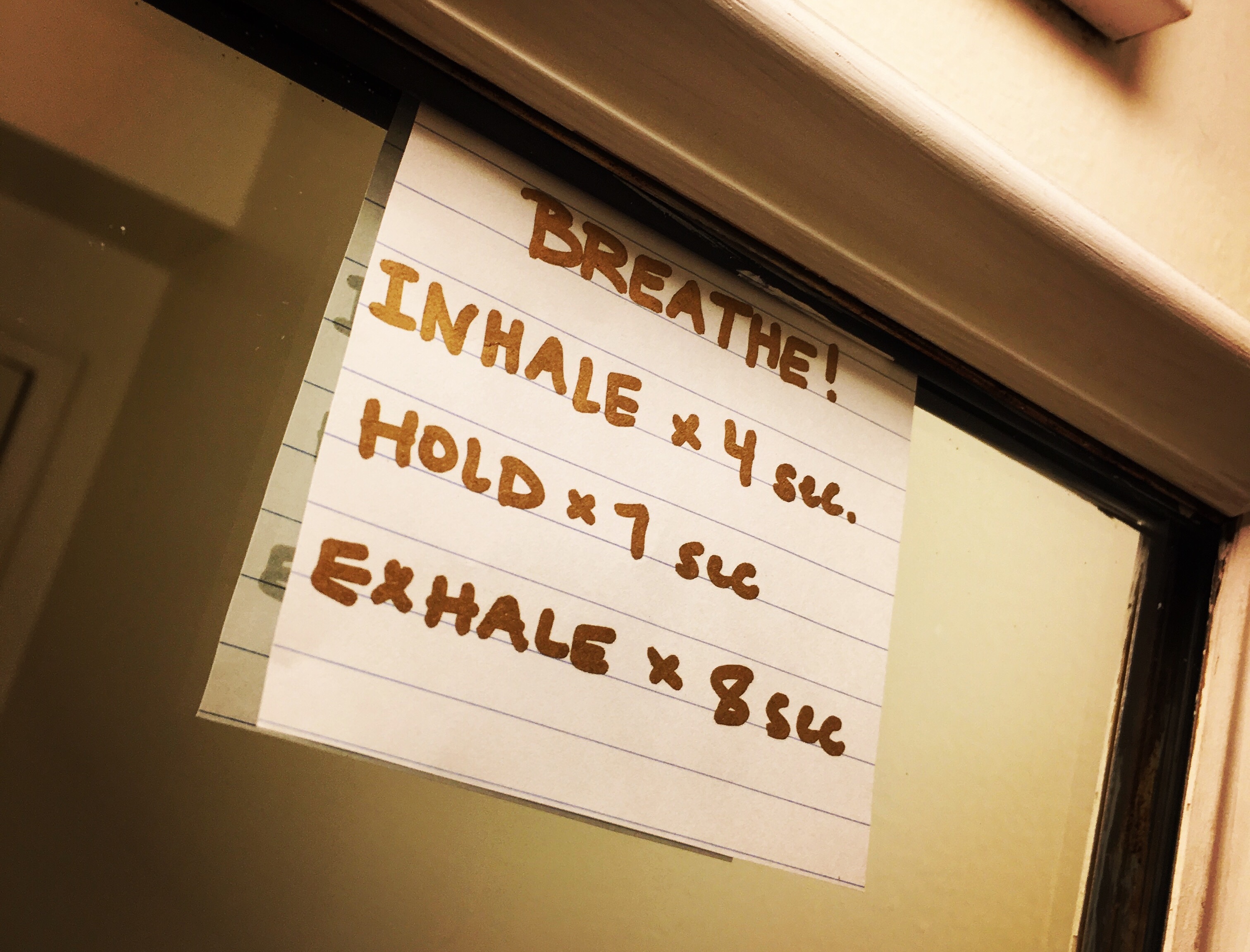Stress Management for Parents of Infants and Toddlers
Written by Amanda Stober

Why is stress management so important? It can help prevent many negative outcomes that are linked to stress such as:
- Poorer mental and physical health
- Less effective parenting
- Increased undesired behaviors in children
- Marital problems
- And many more!
Are you feeling stressed? Common signs include:
- Feeling moody or emotional
- Difficulty sleeping
- Undereating or overeating
- Getting sick more frequently
- Forgetfulness, disorganization, or trouble learning
- Difficulty concentrating
- Frequent headaches
It’s easy to understand the negative impacts that parental stress can have not only the parent, but the entire family. Applying the stress management techniques and incorporating them into a busy routine is more challenging. While most parents of little ones won’t have an hour to take to themselves every day, we can start by incorporating small stress management strategies into the daily routines. Begin by choosing of the stress management techniques listed below to incorporate; once that becomes a habit try adding another.
4-7-8 Breathing: Inhale for 4 seconds, hold the breath for 7 seconds, exhale for 8 seconds, repeat 3 times. Taking long exhales helps to activate the portion of our nervous system that is responsible for slowing the heart rate and resting. Incorporate this technique during a daily activity (such as doing the dishes or preparing a meal) or when you feel most stressed (maybe when your toddler is having a tantrum or you’re stuck in rush hour traffic).
Practice Gratitude: While taking a shower, think of three things you are grateful for. Challenge yourself to pick new things every time you repeat this practice. Nothing is too small to be grateful for!
Dark Chocolate Mindfulness Meditation: Some studies suggest that dark chocolate can support stress reduction. While this evidence remains controversial. The evidence for mindfulness mediation in stress reduction is strong, so let’s combine the two! Rather than chowing down a bar a chocolate, let’s make it a mindful experience. Take a piece of chocolate, before eating it try taking 3 deep breathes just to focus on the smell of it. Once placing it in your mouth, focus on the taste-can you find 3 words to describe it? Rather than chewing it try letting it melt on the tongue, can you find three words to describe the texture?
Sing: Singing has been shown to decrease cortisol levels (the stress hormone) and increase happiness! Songs can also help a toddler transition between activities or tolerate an activity for longer. Pick a song to sing every time that occurs (i.e the clean-up song while cleaning up toys, or “twinkle twinkle little star” for teeth brushing). If nursery rhymes aren’t your jam, sing to the radio every time you’re in the car.
Move: While having a lengthy amount of time to get a full workout in is great, not all of us have that luxury. Try incorporating a little bit of movement throughout your day. Here are a few ways to do this.
- Take a 5-10 minute walk after each meal (maybe this is in the neighborhood, maybe it’s around your back yard or driveway while you child plays)
- Every time you go to the bathroom do 10 jumping jacks (or whatever exercise you prefer)
- Take the stairs more often (if you have an upstairs bathroom or bathroom on a different floor at work, commit to only using that one)
- Do squats while you brush your teeth (2 minutes twice a day will add up!)
- Stretch while you’re scrolling on your phone (we all end up on there, might as make it a more beneficial use of time)
Sleep: Sleep plays a huge role in ability to manage stress and overall health. You’ve probably witnessed it first-hand (think about the days when your infant or toddler missed a nap). The recommended amount of sleep for adults is 7-9 hours per night. Gradually move up your bedtime 5-10 minutes per night until you hit the right sleep amount for your body. Set an alarm to signal the transition to sleep. Once that alarm goes off, commit to starting your bedtime routine or turning off the devices and going to bed; the dishes in the sink can wait and Netflix will still be there tomorrow.
Or create your own!
- Pick a stress management technique; make it realistic and doable.
- Pick a place in your routine where it will go. Try identifying the most stressful parts or you days and see if there are any stress reduction techniques you can incorporate there.
- Set yourself up for success: put up a visual reminder, set a repeating alarm on your phone, and recruit an accountability buddy!
Putting the extra effort to manage stress now, will pay off in the long run. Both in physical and mental health, as well as your ability to show up for your child!
Amanda Stober, MOT, OTR/L
Pediatric Occupational Therapist
References:
50 Common Signs and Symptoms of Stress. (n.d.). Retrieved April 10, 2020, from https://www.stress.org/stress-effects
National Sleep Foundation Recommends New Sleep Times. (2015, February 2). Retrieved April 10, 2020, from https://www.sleepfoundation.org/press-release/national-sleep-foundation-recommends-new-sleep-times
Relaxation Techniques for Health. (n.d.). Retrieved April 10, 2020, from https://www.nccih.nih.gov/health/relaxation-techniques-for-health
Schladt, T. M., Nordmann, G. C., Emilius, R., Kudielka, B. M., de Jong, T. R., & Neumann, I. D. (2017, September 14). Choir versus Solo Singing: Effects on Mood, and Salivary Oxytocin and Cortisol Concentrations. Retrieved April 10, 2020, from https://www.ncbi.nlm.nih.gov/pubmed/28959197